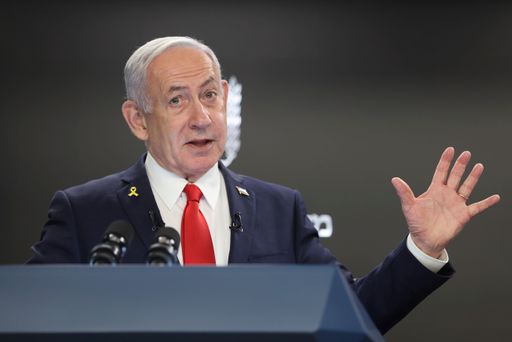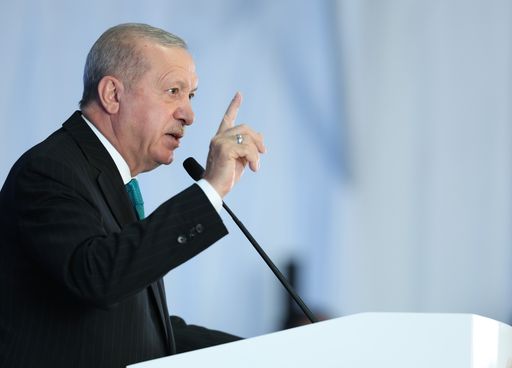Israel’s strike on Qatar’s Doha on September 9, targeting a Hamas leadership gathering to consider a ceasefire proposal, showed the Zionist state’s determination to escalate a conflict that has already devastated Palestinian lives for nearly two years.
It follows the regime’s recent plan to fully reoccupy Gaza, which has been executed through a ground invasion, signalling an intention to intensify violence and to reject ceasefire efforts outright.
Facing mounting criticism, Prime Minister Benjamin Netanyahu used the 24th anniversary of the September 11 terrorist attacks on American soil to defend Israel’s attack as part of a broader assault, framing October 7 as Israel’s own 9/11 and drawing parallels to the US response, emphasising the sweeping excess of the American reaction.
In doing so, Netanyahu offered a revealing explanation for what many analysts have described with terms such as “insanity” and “madness”.
The overlap is striking: just as critics portray Israel’s conduct as unhinged violence, Netanyahu himself reaches for the 9/11 analogy; a framing that presents Israel’s actions as the aftermath of trauma, an extreme response to a shattering event.

Yet the language of “insanity” and “madness,” though it captures the sheer inhumanity of the genocidal violence, risks obscuring a crucial truth: this campaign is not simply a reactive or unintentional spasm of chaos unleashed after October 7, 2023.
The 9/11 parallel, far from legitimising Israel’s conduct, underscores its intentional and evil nature.
Let’s be clear: Israel’s offensive is an intentional act of destruction, rooted in a long history of settler violence and the dehumanisation of the Palestinian people.
Method in the madness
Israel’s “madness” must be called what it is.
For, madness is often seen as the absence of reason, a fleeting eclipse of judgment. Such framings are often invoked to obscure responsibility, casting atrocities as erratic outbursts.
Consider a simple analogy: someone suffers a trauma and explodes in rage, losing control and acting wildly. We might call it a moment of insanity; a break from normal behaviour driven by overwhelming emotion.
But if the violence is carried out long before and after the incident, with premeditation and full awareness, how should we characterise such madness?
In this case, the so-called madness carries method; it is madness engineered and systematic, not erratic.
Israel’s violence is meticulously planned and strategically executed. The massive and repeated targeting of civilian infrastructure, weaponised starvation, and surveillance to track and eliminate entire families are the signs of a killing machine executing a deliberate strategy. It is not a reactive, chaotic eruption devoid of intention.
Far from being a sudden reaction, it exposes a fusion of material interests and ideological fanaticism rooted in radical, intentional evil—a pattern that has been unfolding long before October 7.
The so-called turning point
The effort to frame the current slaughter as if it began on October 7, 2023, is itself a rhetorical tactic aimed at erasing the long trajectory of Palestinian suffering.
Since then, some mainstream media have often portrayed Israel’s offensive as merely a response to the Hamas attacks, overlooking the broader historical context of settler colonialism.
This omission of historical background was a purposeful strategy also pursued by the Netanyahu government from the outset.
Israel’s ambassador to the United Nations described the October 7 attacks as “unprecedented,” and, more tellingly, declared: “This is our 9/11…We are committed to change the equation, to shatter the old paradigm.”
This rhetoric implied a turning point; a signal that Israel would now abandon the so-called previous restraints and embrace a far more aggressive posture.
It also suggests that Israel had never done anything like this before and that the event alone is the cause of its subsequent brutal measures.
What Israel had done to Palestinians before that date was irrelevant, as though history began on October 7. In this way, madness would gain legitimacy, cloaked in the language of necessity.
Netanyahu repeated the same analogy over and over. In his widely publicised address to the US Congress, he not only compared October 7 to 9/11 but also invoked Pearl Harbor.
The analogy is revealing. The Bush administration had also compared 9/11 to the seminal moment during World War II, calling it “our second Pearl Harbor.”
The implicit message was clear: from that moment on, any and all actions—however extreme—would be understandable, even forgivable.
Indeed, one study later suggested that the devastation inflicted on Fallujah alone surpassed even the horrors of the nuclear bombings of Japan following Pearl Harbor.
Scott Ritter, a former Marine Corps officer in Iraq and United Nations weapons inspector, later remarked: “The irony is we invaded Iraq in 2003 to destroy its non-existent WMD [weapons of mass destruction]. To do it, we fired these new weapons, causing radioactive casualties.”
Then Netanyahu’s call is not just an appeal for Western support but it was also part of a broader effort to reframe the violence that followed as morally justified, much like President George W. Bush’s so-called ‘war on terror’.
Therefore, even when Joe Biden, the former US president and one of Netanyahu’s staunchest allies, appeared to heed public pressure and urged Israel not to repeat the mistakes Washington made after 9/11, the message did nothing to slow the assault in any way.
Netanyahu’s government shows no intention of learning from the “mistakes” made after 9/11; in fact, it has deliberately transformed those very mistakes and even worse actions into a catastrophic strategy that Israel has pursued for decades.
Historical pattern of Israel’s brutalism
Netanyahu’s 9/11 connection does not start with October 7. It runs far deeper, rooted in years of political opportunism.
The attacks struck at the peak of the Second Intifada, when Israel’s propaganda machine shifted into overdrive, reframing its campaign to dispossess Palestinians and suppress their rights as part of the global “war on terror”.
In the immediate aftermath, asked how the tragedy might affect US–Israeli relations, Netanyahu, infamously replied, “It’s very good.”
From day one, he saw 9/11 as a political windfall to pull Washington even closer to Israel’s inhumane strategic goals. Years later, he would dispense with the euphemisms, openly declaring that Israel had benefited from the attacks.

This perspective is not unique to Netanyahu personally but reflects Zionist habitual ideas and a strategic culture that predate the state’s founding and have shaped Israeli policy ever since, demonstrating a long-standing continuity rather than a sudden shift.
Israel’s current campaign to annihilate Gaza is anything but unprecedented. What Israel is doing is not the result of a short time unbridled fury; it is the logic of ethnic cleansing, of an attempt to permanently alter the demographic and political reality in Palestine.
Violent offensives before October 7 range from Sabra and Shatila (1982) to Israel’s wars on Gaza in 2008-09, 2012 and 2014, 2021 and the crackdown on the Great March of Return (2018–19), among others.
Today, as the plan to fully occupy Gaza moves forward, and we wake each morning to reports of Palestinians killed or starving, it becomes clear this is no isolated, erratic act that began on October 7.
We must remember the pain and the long, dark story: a continuation of a systematic cruelty deeply rooted in history.




















